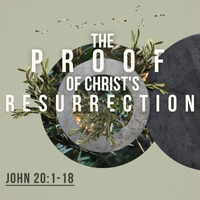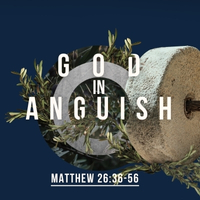A Future Resurrection?
Thousands of years ago a man named Job asked a crucial question: “If a man dies, will he live again?” (Job 14:14). It’s a question that sooner or later all of us are forced to ask. There are of course many different opinions out there on the topic. Atheists believe that nothing happens to us after we die, and that we just cease to be. Hindus believe we get reincarnated and come back as someone or something else in another life. And then there is the belief of Christians, that our bodies will be resurrected from the grave one day. Who is right?
How can we be so sure there is going to be a future resurrection? Three things come to mind:
1. The internal witness
It says in the book of Ecclesiastes that, “God has also set eternity in the hearts of men” (Ecclesiastes 3:11). Meaning, there is something about the way we are wired internally that longs to live forever. We want to stay forever young. We want to be live and not die. And what this indicates is that the world as it is presently is, is not the way it was supposed to be; otherwise, we’d be okay with it. Why is it that we get frustrated with our aches and pains? Why is it that when someone dies we feel that something isn’t right? Why do we have a longing for eternal life? God put it there.
Furthermore, the reason why we feel frustrated over sickness, disease, pain, suffering, and death is because all those things are intruders into God’s perfect world. In the beginning, after God had created everything, God said it was “very good” (Genesis 1:31). God’s intention was that man would live forever in a world free of sickness, disease, pain, suffering, and death. We know this because after Adam and Eve sinned, God banished them from the garden of Eden so that they couldn’t eat from the tree of life and live forever in their fallen state (Genesis 3:22–23). So, there is the internal witness. Then there is the witness of Jesus.
2. The witness of Jesus
Jesus was crucified on a cross, buried in a tomb, but after three days, his tomb was found to be empty and Jesus appeared alive again to friends, family, and even enemies—like Paul, before his conversion. The apostle later wrote, “But Christ has indeed been raised from the dead, the firstfruits of those who have fallen asleep” (1 Corinthians 15:20). The term firstfruits referred to the first part of the harvest that was ripe and ready and would soon be followed by the rest of the harvest. So, in calling Christ the firstfruits, Paul is saying Christ’s resurrection is like a guarantee for all those who belong to him that they also will be raised from the dead. Jesus himself referred to this “harvest” (Matthew 13:39) as the end of the age when he returns. So, there is the internal witness, there is the witness of Jesus, and there is the witness of Scripture.
3. The witness of Scripture
The same Scriptures which predicted the first coming of Christ so accurately, hundreds of years before the fact, also predicts his second coming and a resurrection of the dead unto life for all believers in Jesus Christ. There are over 300 prophecies from the Old Testament about the Messiah that were fulfilled in Jesus’ first coming. Prophecies like Micah 5:2 that the Messiah would be born in Bethlehem. Prophecies like Psalm 22 which describes how the Messiah would be crucified, even before crucifixion was invented. Prophecies like Psalm 16:10 which predicted the resurrection. If all the prophecies surrounding his first coming were so accurately fulfilled, then we can be confident that the prophecies about his second coming will be equally fulfilled, including the promise of a resurrection of the dead for all who believe in Jesus.
If you find this devotional from Pastor Bryan Guinness to be an encouragement to you, visit more like this at: www.bryanguinness.com






